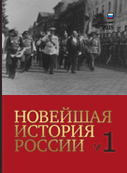
The Role Of Exit Festival In The Development Of Novi Sad Identity
Uloga festivala "Exit" u razvoju identiteta Novog Sada
Keywords: Novi Sad; Exit; music festival; city identity; Petrovaradin fortress
As a music event, the Exit festival attracts hundred thousands of visitors from Serbia, the Balkans, Europe and the world. In a decade of its existence it became one of the best European festivals, but also with its engagement, cultural and entertainment concept and support to humannitarian organizations contributes to the community as a whole over the year. In the same time Exit sends a positive message from Serbia to the world, and due to the festival Novi Sad became synonim of high quality music, happening, youth, and positive attitude to life. As an institution strongly supported by local public, and the event integrated into the city life, and inseparable from the Petrovaradin fortress, Exit is a relevant factor in understanding of Novi Sad identity, as an urban whole with cultural and historic heritage of its own, and identity of its inhabitants. Highlighting achievements and shortcomings in the Novi Sad and Exit cooperation, it should be pointed that this organization positively influences cultural and tourist life of the city, though its potential for better cooperation with the city is hardly exhausted.
More...
